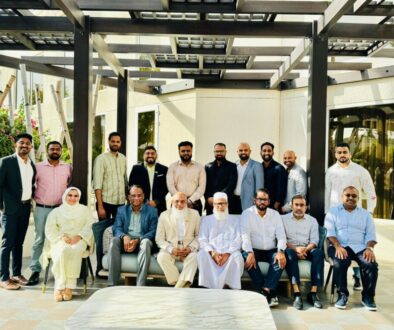Family Businesses & Non-Family Businesses Need Different Leadership Approach: Ameen Ahsan, The Strategy Advisor
Family Businesses & Non-Family Businesses Need Different Leadership Approach: Ameen Ahsan, The Strategy Advisor
In the dynamic landscape of business management, the contrast between family businesses and non-family businesses is stark. Ameen Ahsan, a distinguished strategy advisor based in Dubai, emphasizes that each type demands a unique leadership approach to ensure sustainability, growth, and success. As a strategy advisor, Ameen Ahsan provides deep insights into the intricacies of leading family-owned enterprises and non-family corporations, particularly within the GCC region.
Family Businesses: A Legacy of Emotional Ties
Family businesses are characterized by a blend of personal and professional relationships. Leadership in these enterprises often involves managing emotional dynamics, family conflicts, and succession planning, which can significantly impact business continuity. Ameen Ahsan underscores the importance of recognizing these factors:
- Succession Planning: Ensuring a smooth transition of leadership within the family is crucial. This involves preparing the next generation, defining clear roles, and establishing a governance structure to mitigate conflicts.
- Emotional Intelligence: Leaders must navigate family emotions and business decisions, maintaining a balance between personal relationships and professional responsibilities.
- Long-term Vision: Family businesses typically focus on legacy and long-term goals rather than short-term profits. Leadership must align with this vision, fostering a culture of sustainability and innovation.
Non-Family Businesses: A Focus on Professionalism
Non-family businesses, on the other hand, prioritize professional management and strategic goals driven by market demands. The leadership approach here is more formal and performance-oriented:
- Merit-Based Leadership: Decisions are made based on skills and competencies rather than familial ties. This promotes a culture of excellence and accountability.
- Clear Governance: Non-family businesses benefit from well-defined governance structures that streamline decision-making processes and enhance operational efficiency.
- Short-Term and Long-Term Goals: Balancing immediate financial performance with strategic growth is essential. Leaders must be adept at managing resources, innovation, and competitive positioning.
Leadership Approaches: A Comparative Analysis
- Communication and Conflict Resolution
- Family Businesses: Open communication and conflict resolution mechanisms are vital to address family disputes and align personal interests with business goals. Regular family meetings and a formal family council can facilitate this process.
- Non-Family Businesses: Professional conflict resolution strategies and transparent communication channels help in maintaining harmony and focus. Regular performance reviews and feedback mechanisms are crucial.
- Governance and Decision Making
- Family Businesses: Establishing a family constitution and a board of directors with both family and non-family members ensures balanced decision-making. This structure helps in addressing both family and business interests effectively.
- Non-Family Businesses: A formal board of directors with independent members enhances objectivity in decision-making. Clear policies and procedures ensure accountability and strategic alignment.
- Succession Planning
- Family Businesses: Proactive succession planning involves identifying potential leaders from within the family and providing them with the necessary training and mentorship. This process should be transparent to avoid conflicts and ensure a smooth transition.
- Non-Family Businesses: Succession planning is based on merit and involves grooming potential leaders through professional development programs and leadership pipelines. External hiring is also considered to bring fresh perspectives.
The Role of a Strategy Advisor
Ameen Ahsan’s expertise in family business advisory is pivotal for family-owned enterprises aiming for professionalization and continuity. His approach involves:
- Customizing Leadership Development: Tailoring leadership training programs to address the unique needs of family businesses, focusing on emotional intelligence, conflict resolution, and legacy planning.
- Enhancing Governance Structures: Assisting in the creation of robust governance frameworks that balance family interests with business objectives.
- Crisis Management: Providing strategic guidance during family business crises, ensuring that decisions are made objectively and in the best interest of the family’s and business’s sustainability.
Conclusion
Family businesses and non-family businesses indeed require different leadership approaches to thrive. Understanding and addressing the unique challenges and dynamics of each type is essential for sustainable growth and success. Ameen Ahsan, with his profound expertise in business advisory, offers invaluable guidance to family-owned enterprises in the GCC region, helping them navigate complexities and achieve their long-term vision.
For more insights and professional advice on family business continuity and leadership, visit Ameen Ahsan’s official website (ameenahsan.com).
Family Business Advisory Service by Ameen Ahsan
To Know More About How Ameen Ahsan Can Assist Your Family Business, please watch the video https://youtu.be/qOHVL8GgIXY?si=RRkqwUxMUZEB5Yg3



